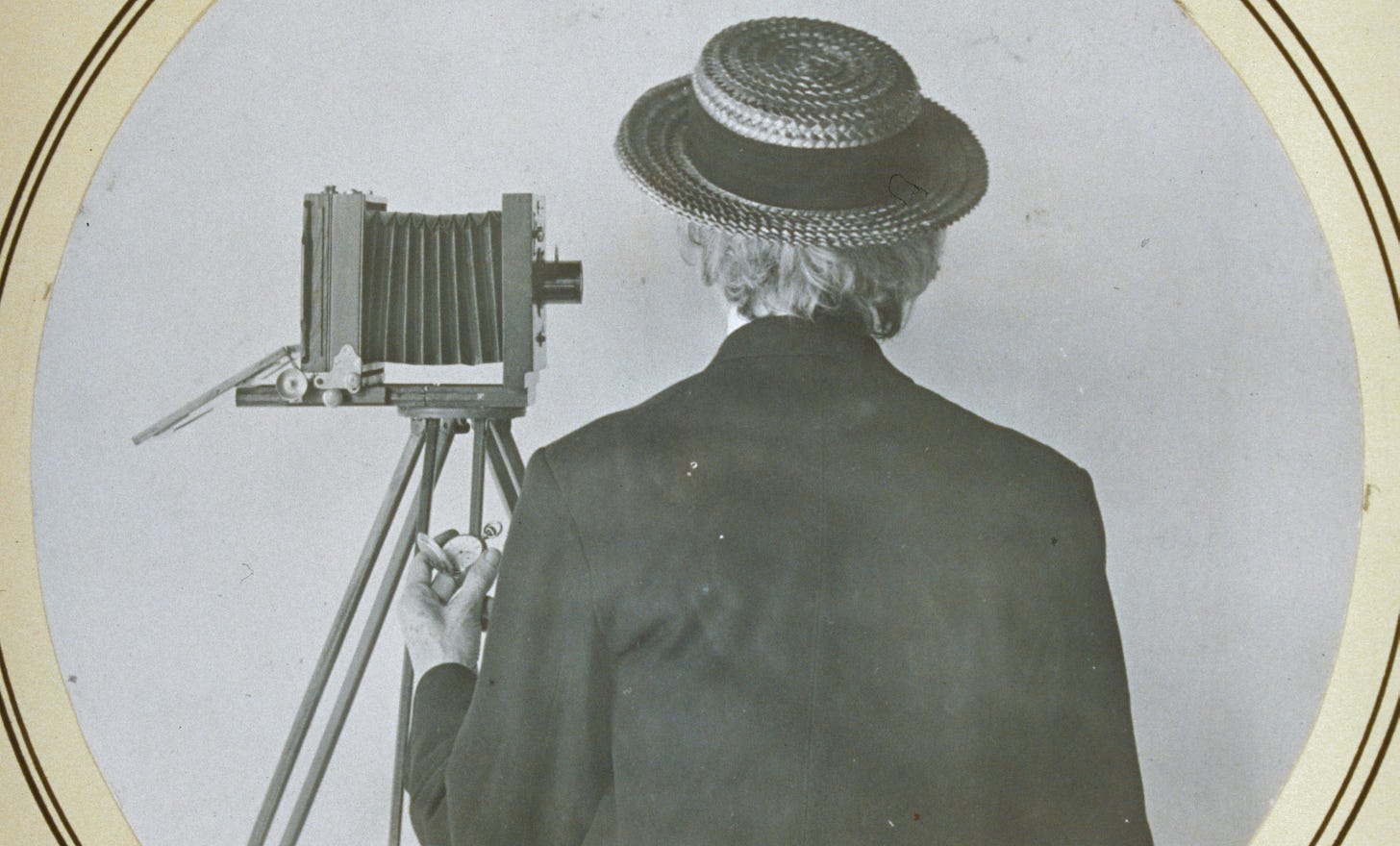Why You Won’t Mistreat Certain Images: An Existential Quiz
You won’t abuse a photo—whether of a stranger or one you love—and I know why

If you’re new to existential quizzes, check out this post explaining what they are. If you want to read more, you’ll find a few here.
Please do the question and thought experiment below. Record your response in the comments section of this page (if you want) with justifications for why you chose the answer you did.
The Quiz
In his classic The Story of Art, E. H. Gombrich draws our attention to one of the strange ways that we behave towards images. He writes,
“Suppose we take a picture of our favourite champion from today’s paper — would we enjoy taking a needle and poking out the eyes? Would we feel as indifferent about it as if we poked a hole anywhere else in the paper? I do not think so.”
Surely, the image can’t feel any pain. But there’s just something about poking the eyes out of another’s photo that is unsettling. Or, at least that’s what Gombrich thinks.
Question: Why do we recoil at the thought of poking the eyes out of someone in a photograph, even though the image can’t feel anything?
Choose only one of the following:
A) Because we’re afraid we’d look like psychopaths, obviously. If nobody was looking, it’d be a different story. Just imagine the woman’s face sitting next to you, on your train commute in to work, as you poke Mike Tyson’s eyes out in yesterday’s newspaper. She’d probably be justified in reporting you to the authorities.
B) Because we’re afraid we might actually be psychopaths. Even if nobody saw you poke the eyes out of Iron Mike, you might still have to live with yourself and the nagging idea that you may be crazy. You know, after all, crazy people don’t think they’re crazy, which is kind of crazy to think about. It is much preferable to live your life without that nagging suspicion that you may in fact have lost your marbles.
C) Technically, we don’t have this problem, so I’m not sure why you’re asking this question. Why? Nobody prints actual photographs. Maybe some people do. Older generations like pictures they can hold and hang on their wall. But for the most part, you can’t poke the eyes out of a digital image. So, stop asking stupid questions, man.
D) I think you’re making a big deal about this. Images can’t feel pain, but people can. I see nothing objectionable about profaning images in the manner you describe. Watch me!
E) It depends on who the image is of. I have no reservations about poking the eyes out of an image of Mao, Hitler, or Stalin.
F) Because an image, being a symbol, has somehow and in some strange way fixed the essence of the person into a tangible, material form. Like a genie in a bottle or a ghost fixed in time, a man in an image is somehow “captured” in the photograph. To destroy an image of another is, in some weird manner, to destroy the person themselves. Images prove our existence. As Susan Sontag observed in On Photography, we avoid tearing up photos of loved ones—whether they be dead or far away. To do such a thing, she says, would constitute a “ruthless gesture of rejection.” Even with regard to digital images, deleting them somehow feels wrong. Thus, there will always be dedicated places for saving images, either in storage chests, archives, museum walls, churches, or online photo albums.
G) None of the above.
Bonus: Thought Experiment
Visit Flickr Commons (or any other online photo archive with images in the public domain) and browse the old photographs. The pictures should be from sometime before 1990.
See if you can find pictures of your local area.
How do you feel about looking at these images?
Do any of them look bad? Do they all look good?
If they all look good, then what makes them look good? Is it the lighting, composition, exposure, camera angle, or subject? Or does it have anything to do with how old they are?
Why do old images look good simply because they’re old, as Sontag suggests?





I chose answer F. Just yesterday I had a conversation with a student in which we discussed how photographs freeze a moment of reality and become unrealistic in a sense, failing to capture the fullness of the scene in frame and leading one to frequently say, "You really should have been there." However, it is also the case that a photograph symbolizes the real existence of the subject(s), and so to deface or destroy it is in some way to deface or destroy that moment of reality. I agree with the assertion that such an act "would constitute a 'ruthless gesture of rejection.'” So much the better for our mental wellbeing to accept the circumstances that led to a particular photograph as part of one's journey in life and to give thanks for the chance to grow from that experience, whether good or bad. Everyone we encounter affects our lives in some way; it's up to us to choose how we receive that. What if instead of poking out the photographed eyes of some person who hurt us, we offered a prayer for them?